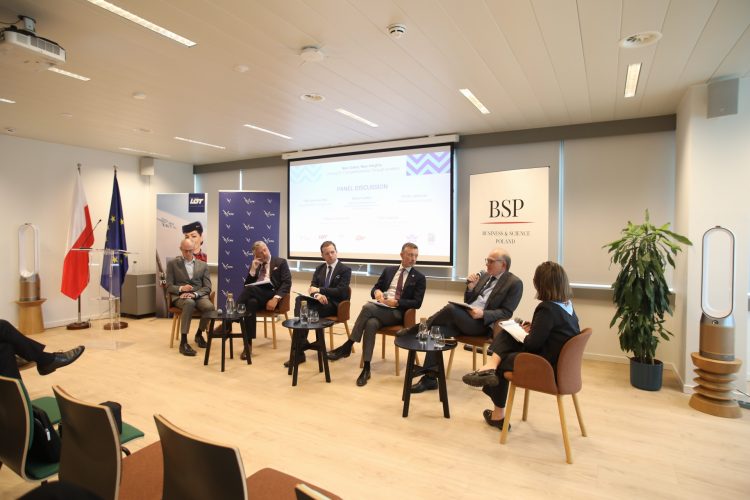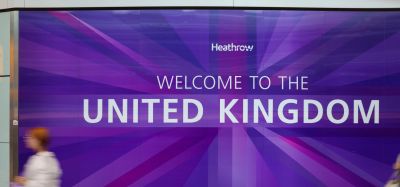Aviation leaders urge EU to act as global competitiveness risks take centre stage in Brussels
Posted: 29 May 2025 | Gabriel Higgins | No comments yet
European aviation must be prioritised as a strategic sector, industry leaders warn, or risk long-term economic and competitive decline.


Credit: Centralny Port Komunikacyjny (CPK)
On 21 May, aviation leaders, policymakers, and business representatives gathered in Brussels for New Gates, New Heights: Driving EU Competitiveness Through Aviation, an event held under the Polish Presidency of the EU Council. Co-organised by Centralny Port Komunikacyjny (CPK), LOT Polish Airlines, and Business & Science Poland, the summit urged the EU to recognise aviation as a strategic sector and warned of the risk to Europe’s global competitiveness without decisive action.
EU aviation leaders call for urgent action to boost competitiveness and secure the sector’s strategic future
Aviation remains a cornerstone of Europe’s economy, supporting 15 million jobs and contributing €1.2 trillion—around 4.6% of the region’s GDP in 2023. ACI EUROPE reports that a 10% rise in air connectivity leads to a 0.5% increase in GDP per capita and a 1.6% boost in employment. In Poland, the sector directly employs 54,800 people and contributes $3.6 billion to the economy, with the broader aviation ecosystem supporting nearly 288,400 jobs and adding $15.3 billion to GDP.
Central to Poland’s vision for strengthening the EU’s aviation competitiveness is the development of the Centralny Port Komunikacyjny (CPK), a cutting-edge, net-zero-ready multimodal transport hub designed to meet soaring passenger demand and integrate air, rail, and road networks seamlessly. Once operational, CPK will connect Polish cities via new high-speed rail lines and eventually provide links to European capitals, supporting efficient connectivity in a way that is fully aligned with the EU’s Sustainable and Smart Mobility Strategy.
Filip Czernicki, PhD, CEO of CPK, highlighted the project’s strategic importance: “The capacity of Chopin Airport is nearing its limit, which is why we need CPK. It will be accessible by all means of transport, including high-speed rail. Poland still has significant growth potential and is growing at twice the pace of many other European countries.”
While celebrating Poland’s infrastructure ambitions, industry leaders warned that the EU aviation sector faces growing competitive pressures. LOT Polish Airlines, which recently published business and decarbonisation strategies through 2030, pointed to rising costs driven by environmental regulations. The Draghi Report estimates decarbonisation will cost the sector €61 billion annually from 2031 to 2050, with sustainable aviation fuel (SAF) requirements escalating to 70% by 2050.
However, SAF remains three to four times more expensive than traditional fuel, and Poland currently lacks local SAF production facilities, placing additional financial strain on carriers like LOT. In 2025, LOT’s SAF-related costs are expected to reach €40 million, rising to €100 million by 2030. These factors threaten the global competitiveness of European airlines compared to carriers from regions with looser environmental rules.
Michał Fijoł, CEO of LOT Polish Airlines, said: “I’m here to speak on behalf of the entire European business sector. We believe in our intelligence and our advanced technologies. That’s why we can be extremely successful. But we must have equal opportunities – the same chances as our competitors from around the world. There are major external benefits to having a strong airline. It’s about connectivity, and it’s about exporting services and creating jobs.”
CPK and LOT Polish Airlines encourage the European Commission to embed aviation competitiveness within its policy frameworks by including aviation in the Clean Industrial Deal and Sustainable Transport Investment Plan. Moreover, investments in multimodal and sustainable transport infrastructure should be adequately supported from the EU budget under the upcoming Multiannual Financial Framework. Both companies also recommend targeted financial support for SAF production, exemption from fuel taxation proposals, elimination of non-CO₂ emissions monitoring requirements, and the introduction of a virtual SAF certification trading system. Additionally, CPK and LOT advocate for a burden-equalisation mechanism to level the playing field with non-EU carriers benefiting from less stringent regulations, alongside full enforcement of rules safeguarding fair competition.
The message is clear: aviation is a strategic economic asset critical for connectivity, jobs, and growth. Europe must act decisively to preserve its aviation industry’s global standing and support ambitious infrastructure projects like CPK to ensure a sustainable and competitive future.
Stay Ahead in Aviation — Subscribe for Free!
Get exclusive access to the latest aviation insights from International Airport Review — all tailored to your interests.
✅ Expert-Led Webinars – Learn from industry leaders
✅ Weekly News & Reports – Airport updates, thought leadership, and exclusive interviews
✅ Event Invitations – Be part of the International Airport Summit
✅ Partner Innovations – Discover the latest industry trends
Choose the updates that matter most to you. Sign up now and stay informed, inspired, and connected — all for free!
Thank you for being part of our community. Let’s keep exploring the future of aviation together!
Join our free webinar: Beyond silos: How ecosystem thinking elevates the airport experience
In today’s complex aviation landscape, airports are moving beyond siloed operations to embrace a new era of collaboration. This webinar focuses on how leading airports are using ecosystem thinking to adapt, personalize, and continuously improve every touchpoint, boosting both passenger satisfaction and non-aeronautical revenue.
Date: 13 Nov | Time: 10:00 GMT
REGISTER NOW TO SECURE YOUR SPOT
Can’t attend live? No worries – register to receive the recording post-event.
Related topics
Airlines, Airport leadership, Conferences and events, Economy, Funding and finance, Operational efficiency, Passenger volumes, Regulation and Legislation, Route development, Sustainability
Related airlines
Related organisations
ACI Europe, Business & Science Poland, Centralny Port Komunikacyjny (CPK)


















